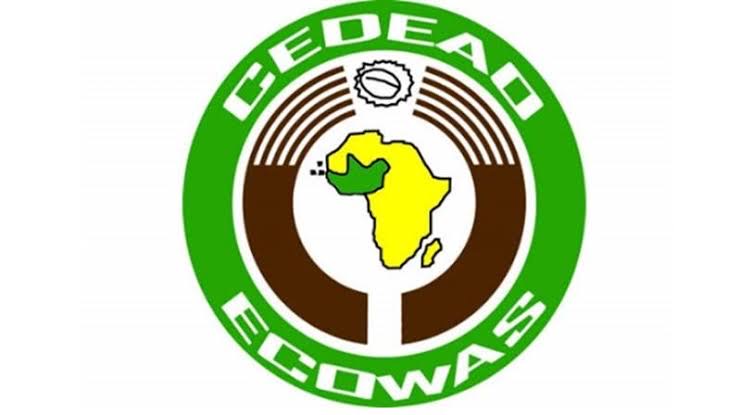Energy giant Glencore pleads guilty to bribing NNPC officials $52 million; agrees to pay $1.1 billion fine to U.S. Govt

Glencore Entered Guilty Pleas to Foreign Bribery and Market Manipulation Schemes
Swiss-Based Firm Agrees to Pay Over $1.1 Billion
Glencore International A.G. (Glencore) and Glencore Ltd., both part of a multi-national commodity trading and mining firm headquartered in Switzerland, each pleaded guilty today and agreed to pay over $1.1 billion to resolve the government’s investigations into violations of the Foreign Corrupt Practices Act (FCPA) and a commodity price manipulation scheme.
These guilty pleas are part of coordinated resolutions with criminal and civil authorities in the United States, the United Kingdom, and Brazil.
“The rule of law requires that there not be one rule for the powerful and another for the powerless; one rule for the rich and another for the poor,” said Attorney General Merrick B. Garland. “The Justice Department will continue to bring to bear its resources on these types of cases, no matter the company and no matter the individual.”
The charges in the FCPA matter arise out of a decade-long scheme by Glencore and its subsidiaries to make and conceal corrupt payments and bribes through intermediaries for the benefit of foreign officials across multiple countries. Pursuant to a plea agreement, Glencore has agreed to a criminal fine of more than $428 million and to criminal forfeiture and disgorgement of more than $272 million. Glencore has also agreed to retain an independent compliance monitor for three years. The department has agreed to credit nearly $166 million in payments that Glencore makes to resolve related parallel investigations by other domestic and foreign authorities.
Separately, Glencore Ltd. admitted to engaging in a multi-year scheme to manipulate fuel oil prices at two of the busiest commercial shipping ports in the U.S. As part of the plea agreement, Glencore Ltd. agreed to pay a criminal fine of over $341 million, pay forfeiture of over $144 million, and retain an independent compliance monitor for three years. The department has agreed to credit up to one-half of the criminal fine and forfeiture against penalties Glencore Ltd. pays to the Commodity Futures Trading Commission (CFTC) in a related, parallel civil proceeding.
Sentencing has been scheduled in the market manipulation case for June 24, and a control date for sentencing in the FCPA case has been set for Oct. 3.
“Glencore’s guilty pleas demonstrate the Department’s commitment to holding accountable those who profit by manipulating our financial markets and engaging in corrupt schemes around the world,” said Assistant Attorney General Kenneth A. Polite, Jr. of the Justice Department’s Criminal Division. “In the foreign bribery case, Glencore International A.G. and its subsidiaries bribed corrupt intermediaries and foreign officials in seven countries for over a decade. In the commodity price manipulation scheme, Glencore Ltd. undermined public confidence by creating the false appearance of supply and demand to manipulate oil prices.”
“The scope of this criminal bribery scheme is staggering,” said U.S. Attorney Damian Williams for the Southern District of New York. “Glencore paid bribes to secure oil contracts. Glencore paid bribes to avoid government audits. Glencore bribed judges to make lawsuits disappear. At bottom, Glencore paid bribes to make money – hundreds of millions of dollars. And it did so with the approval, and even encouragement, of its top executives. The criminal charges filed against Glencore in the Southern District of New York are another step in making clear that no one – not even multinational corporations – is above the law.”
“Glencore’s market price manipulation threatened not just financial harm, but undermined participants’ faith in the commodities markets’ fair and efficient function that we all rely on,” said U.S. Attorney Vanessa Roberts Avery of the District of Connecticut. “This guilty plea, and the substantial financial penalty incurred, is an appropriate consequence for Glencore’s criminal conduct, and we are pleased that Glencore has agreed to cooperate in any ongoing investigations and prosecutions relating to their misconduct, and to strengthen its compliance program company-wide. I thank both our partners at the U.S. Postal Inspection Service for their hard work and dedication in investigating this sophisticated set of facts and unraveling this scheme, and the Fraud Section, with whom we look forward to continuing our fruitful partnership of prosecuting complex financial and corporate criminal cases.”
“Today’s guilty pleas by Glencore entities show that there is no place for corruption and fraud in international markets,” said Assistant Director Luis Quesada of the FBI’s Criminal Investigative Division. “Glencore engaged in long-running bribery and price manipulation conspiracies, ultimately costing the company over a billion dollars in fines. The FBI and our law enforcement partners will continue to investigate criminal financial activities and work to restore the public’s trust in the marketplace.”
“The idea of fair and honest trade is at the bedrock of American commerce. It is insult to our shared traditions and values when individuals and corporations use their power, wealth, and influence to stack the deck unfairly in their own favor,” said Chief Postal Inspector Gary Barksdale of the U.S. Postal Inspection Service. “The resulting guilty plea by Glencore Limited demonstrates the tenacity of the U.S. Postal Inspection Service and its law enforcement partners in holding criminals accountable who try to enrich themselves by undermining the forces of supply and demand.”
The FCPA Case
According to admissions and court documents filed in the Southern District of New York, Glencore, acting through its employees and agents, engaged in a scheme for over a decade to pay more than $100 million to third-party intermediaries, while intending that a significant portion of these payments would be used to pay bribes to officials in Nigeria, Cameroon, Ivory Coast, Equatorial Guinea, Brazil, Venezuela, and the Democratic Republic of the Congo (DRC).
Between approximately 2007 and 2018, Glencore and its subsidiaries caused approximately $79.6 million in payments to be made to intermediary companies in order to secure improper advantages to obtain and retain business with state-owned and state-controlled entities in the West African countries of Nigeria, Cameroon, Ivory Coast, and Equatorial Guinea. Glencore concealed the bribe payments by entering into sham consulting agreements, paying inflated invoices, and using intermediary companies to make corrupt payments to foreign officials. For example, in Nigeria, Glencore and Glencore’s U.K. subsidiaries entered into multiple agreements to purchase crude oil and refined petroleum products from Nigeria’s state-owned and state-controlled oil company. Glencore and its subsidiaries engaged two intermediaries to pursue business opportunities and other improper business advantages, including the award of crude oil contracts, while knowing that the intermediaries would make bribe payments to Nigerian government officials to obtain such business. In Nigeria alone, Glencore and its subsidiaries paid more than $52 million to the intermediaries, intending that those funds be used, at least in part, to pay bribes to Nigerian officials.
In the DRC, Glencore admitted that it conspired to and did corruptly offer and pay approximately $27.5 million to third parties, while intending for a portion of the payments to be used as bribes to DRC officials, in order to secure improper business advantages. Glencore also admitted to the bribery of officials in Brazil and Venezuela. In Brazil, the company caused approximately $147,202 to be used, at least in part, as corrupt payments for Brazilian officials. In Venezuela, Glencore admitted to conspiring to secure and securing improper business advantages by paying over $1.2 million to an intermediary company that made corrupt payments for the benefit of a Venezuelan official.
In July 2021, a former senior trader in charge of Glencore’s West Africa desk for the crude oil business pleaded guilty to one count of conspiracy to violate the FCPA and one count of conspiracy to commit money laundering.
Under the terms of the plea agreement, which remains subject to court approval, Glencore pleaded guilty to one count of conspiracy to violate the FCPA, agreed to a criminal fine of $428,521,173, and agreed to criminal forfeiture and disgorgement in the amount of $272,185,792. Glencore also had charges brought against it by the U.K.’s Serious Fraud Office (SFO) and reached separate parallel resolutions with the Brazilian Ministério Público Federal (MPF) and the CFTC. Under the terms of the plea agreement, the department has agreed to credit nearly $256 million in payments that the company makes to the CFTC, to the court in the U.K., as well as to authorities in Switzerland, in the event that the company reaches a resolution with Swiss authorities within one year.
The department reached its agreement with Glencore based on a number of factors, including the nature, seriousness, and pervasiveness of the offense conduct, which spanned over a 10-year period, in numerous countries, and involved high-level employees and agents of the company; the company’s failure to voluntarily and timely disclose the conduct to the department; the state of Glencore’s compliance program and the progress of its remediation; the company’s resolutions with other domestic and foreign authorities; and the company’s continued cooperation with the department’s ongoing investigation. Glencore did not receive full credit for cooperation and remediation, because it did not consistently demonstrate a commitment to full cooperation, it was delayed in producing relevant evidence, and it did not timely and appropriately remediate with respect to disciplining certain employees involved in the misconduct. Although Glencore has taken remedial measures, some of the compliance enhancements are new and have not been fully implemented or tested to demonstrate that they would prevent and detect similar misconduct in the future, necessitating the imposition of an independent compliance monitor for a term of three years.
The Commodity Price Manipulation Case
According to admissions and court documents filed in the District of Connecticut, Glencore Ltd. operated a global commodity trading business, which included trading in fuel oil. Between approximately January 2011 and August 2019, Glencore Ltd. employees (including those who worked at Chemoil Corporation, which was majority-owned by Glencore Ltd.’s parent company and then fully-acquired in 2014) conspired to manipulate two benchmark price assessments published by S&P Global Platts (Platts) for fuel oil products, specifically, intermediate fuel oil 380 CST at the Port of Los Angeles (Los Angeles 380 CST Bunker Fuel) and RMG 380 fuel oil at the Port of Houston (U.S. Gulf Coast High-Sulfur Fuel Oil). The Port of Los Angeles is the busiest shipping port in the U.S. by container volume. The Port of Houston is the largest U.S. port on the Gulf Coast and the busiest port in the United States by foreign waterborne tonnage.
As part of the conspiracy, Glencore Ltd. employees sought to unlawfully enrich themselves and Glencore Ltd. itself, by increasing profits and reducing costs on contracts to buy and sell physical fuel oil, as well as certain derivative positions that Glencore Ltd. held. The price terms of the physical contracts and derivative positions were set by reference to daily benchmark price assessments published by Platts — either Los Angeles 380 CST Bunker Fuel or U.S. Gulf Coast High-Sulfur Fuel Oil — on a certain day or days plus or minus a fixed premium. On these pricing days, Glencore Ltd. employees submitted orders to buy and sell (bids and offers) to Platts during the daily trading “window” for the Platts price assessments with the intent to artificially push the price assessment up or down.
For example, if Glencore Ltd. had a contract to buy fuel oil, Glencore Ltd. employees submitted offers during the Platts “window” for the express purpose of pushing down the price assessment and hence the price of the fuel oil that Glencore Ltd. purchased. The bids and offers were not submitted to Platts for any legitimate economic reason by Glencore Ltd. employees, but rather for the purpose of artificially affecting the relevant Platts price assessment so that the benchmark price, and hence the price of fuel oil that Glencore Ltd. bought from, and sold to, another party, did not reflect legitimate forces of supply and demand.
Between approximately September 2012 and August 2016, Glencore Ltd. employees conspired to and did manipulate the price of fuel oil bought from, and sold to, a particular counterparty, Company A, through private, bilateral contracts, by manipulating the Platts price assessment for Los Angeles 380 CST Bunker Fuel. Between approximately January 2014 and February 2016, Glencore Ltd. employees also undertook a “joint venture” with Company A, which involved buying fuel oil from Company A at prices artificially depressed by Glencore Ltd.’s manipulation of the Platts Los Angeles 380 CST Bunker Fuel benchmark. Finally, between approximately January 2011 and August 2019, Glencore Ltd. employees conspired to and did manipulate the price of fuel oil bought and sold through private, bilateral contracts, as well as derivative positions, by manipulating the Platts price assessment for U.S. Gulf Coast High-Sulfur Fuel Oil.
A former Glencore Ltd. senior fuel oil trader, Emilio Jose Heredia Collado, of Lafayette, California, pleaded guilty in March 2021 to one count of conspiracy to engage in commodities price manipulation in connection with his trading activity related to the Platts Los Angeles 380 CST Bunker Fuel price assessment. Heredia’s sentencing is scheduled for June 17, 2022.
Glencore Ltd. pleaded guilty, pursuant to a plea agreement, to one count of conspiracy to engage in commodity price manipulation. Under the terms of Glencore Ltd.’s plea agreement regarding the commodity price manipulation conspiracy, which remains subject to court approval, Glencore Ltd. will pay a criminal fine of $341,221,682 and criminal forfeiture of $144,417,203. Under the terms of the plea agreement, the department will credit over $242 million in payments that the company makes to the CFTC. Glencore Ltd. also agreed to, among other things, continue to cooperate with the department in any ongoing investigations and prosecutions relating to the underlying misconduct, to modify its compliance program where necessary and appropriate, and to retain an independent compliance monitor for a period of three years.
A number of relevant considerations contributed to the department’s plea agreement with Glencore Ltd., including the nature and seriousness of the offense, Glencore Ltd.’s failure to fully and voluntarily self‑disclose the offense conduct to the department, Glencore Ltd.’s cooperation with the department’s investigation, and the state of Glencore Ltd.’s compliance program and the progress of its remediation.
Additionally, the CFTC today announced a separate settlement with Glencore and its affiliated companies in connection with its investigation into FCPA and market manipulation conduct in a related, parallel proceeding. Under the terms of the CFTC resolution, Glencore agreed to pay over $1.1 billion, which includes a civil monetary penalty of over $865 million, as well as disgorgement totaling over $320 million.
The FCPA case is being prosecuted by Trial Attorneys Leila Babaeva and James Mandolfo of the Justice Department’s Fraud Section, Trial Attorney Michael Khoo of the Justice Department’s Money Laundering and Asset Recovery Section, and Assistant U.S. Attorneys Michael McGinnis and Juliana Murray of the Southern District of New York. The case is being investigated by the FBI.
The Criminal Division’s Office of International Affairs provided significant assistance in this case. The department also expresses its appreciation for the assistance provided by law enforcement authorities in Switzerland, the United Kingdom, Brazil, Cyprus, and Luxembourg
The commodity price manipulation case is being prosecuted by Deputy Chief Avi Perry and Trial Attorneys Matthew F. Sullivan and John J. Liolos of the Justice Department’s Fraud Section, and Assistant U.S. Attorney Jonathan Francis of the District of Connecticut. The case is being investigated by the U.S. Postal Inspection Service.
The Fraud Section is responsible for investigating and prosecuting FCPA matters. Additional information about the Justice Department’s FCPA enforcement efforts can be found at www.justice.gov/criminal-fraud/foreign-corrupt-practices-act.
The Kleptocracy Asset Recovery Initiative is led by a team of dedicated prosecutors in the Criminal Division’s Money Laundering and Asset Recovery Section, in partnership with federal law enforcement agencies, and often with U.S. Attorneys’ Offices, to forfeit the proceeds of foreign official corruption and, where appropriate, to use those recovered assets to benefit the people harmed by these acts of corruption and abuse of office.
We have recently deactivated our website's comment provider in favour of other channels of distribution and commentary. We encourage you to join the conversation on our stories via our Facebook, Twitter and other social media pages.
More from Peoples Gazette

Politics
Katsina youths pledge to deliver over 2 million votes to Atiku
“Katsina State is Atiku’s political base because it is his second home.”

NationWide
Nigeria positioned to power clean energy Future: Tinubu
Mr Tinubu expressed his firm commitment to improve the developmental partnership between the European Union and Nigeria.

Africa
Benin, Liberia, Sierra Leone roll out malaria vaccines
With the announcement on World Malaria Day, the number of African countries incorporating the vaccines into their childhood immunisation programmes increased to eight.

NationWide
Group urges FG to decongest custodial centres after Suleja jailbreak
”We also call on the public to pay more attention to issues concerning corrections in Nigeria.”

Politics
PDP unveils 200-member campaign council for Edo 2024 guber election
The advisory council has seven eminent members of the state.

Africa
ECOWAS moves to tackle drug abuse in Sierra Leone, other countries
ECOWAS said the workshop was also to support efforts to tackle drug abuse and provide resources and strategies for member states, particularly Sierra Leone.

Lagos
FG to resume resurfacing of Third Mainland Bridge: Official
She said that the exact dates for the renewed construction would be announced soon.








